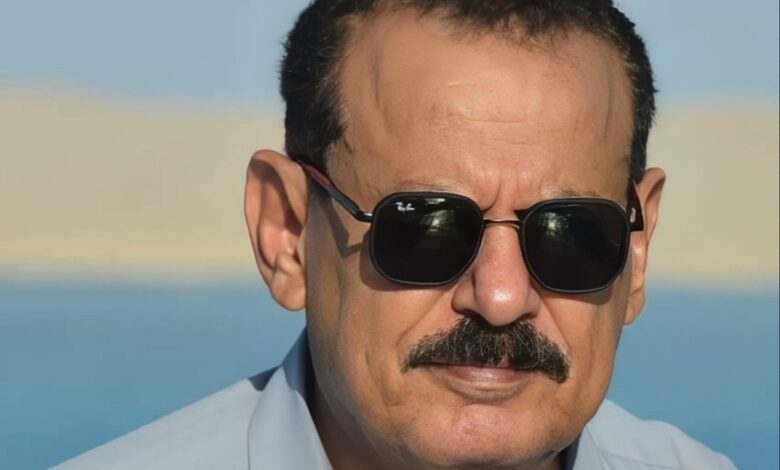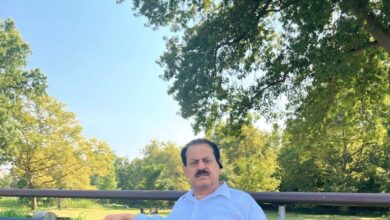The Fourth Message

Yemeni mp
Ahmed Saif Hashed
The war we endured for seven long years was an unjust conflict. It shattered our hopes and the future we yearned for, marking a tragic end to our grand aspirations and leaving our nation torn apart. We found ourselves burdened by tyranny, engulfed in darkness, and subjected to injustices beyond measure—grievances far greater than those we once voiced and revolted against.
As the seven years of war passed, ceasefires emerged, only to be followed by even more conflicts. Our people perished from hunger and despair, ignored by those who lacked the shame or compassion to acknowledge their suffering. Promises dissipated into mirages, and our wretched condition continued without relief. Each day, we ponder: How long must this endure? Where will it ultimately lead us? While they reap profits, we harvest death, hunger, and unmistakable loss.
Our lives have withered, our dreams vanished, and the harvest has turned bitter. The consequences of this war are devastating, and all promises have culminated in vast disappointments. What we experience today is worse than yesterday, and our losses far exceed those of a homeland we tirelessly sought. We are dragged back to a shocking reality that embodies the tribalism of a pre-state era, imposed upon us by those who profit from our regression.
What we endure is fragmentation, hunger, and loss. Our sighs and groans break our spirits as we lament: We once had Yemen; we once had a semblance of a state. Yet today, we possess neither a state nor a homeland, no prosperity nor hope. We continue to pay a heavier price than we have already borne.
We, the good people, have suffered greatly from this war, which has left us and our children in dire hunger, deepening poverty, and an uncertain future. Our present feels more abject than our past, and the most troubling aspect is that we do not know how long this will persist. The war has enriched its masters, merchants, and agents, while we bear its burdens and the tragedies it brings.
Our people have been both the subjects and the fuel of this war, enduring a bitter harvest for seven lean years. Even after those seven years, the worst still pursues us, crushing our bones, refusing to lift its burdens from us.
* * *
This war is what the existentialist philosopher Sartre described—a conflict waged by the wealthy for the poor to perish within. It is the same war that the great Greek tragedian Sophocles elucidated, striking the wicked randomly while the good are always afflicted. It is also the war that Mencius defined as “the earth devouring the flesh of men.”
Indeed, it is the war they spoke of, the one that opens “the gates of hell” when it begins. They claimed it would “end only when the dead return,” and as Khalil Gibran expressed, it concludes with leaders shaking hands while a mother waits for her martyr son.
Our poet Nizar said, “He who sees the poison does not suffer as he who drinks it.” This truth resonates for those who have merely watched a film, read a book, or heard tales of war. Their experiences pale in comparison to those who have lived through its hell. After seven long years, we face even greater burdens, where evil has reached its zenith. It is said, “If you witnessed even one day of war, you would beg God never to show you another.” How dreadful it is to be among its advocates—those who do not endure its flames. As George Orwell observed, “All war propaganda, all the shouting, lies, and hatred, always comes from people who do not fight.”
We told them: If war is inevitable, then we must starve and die together, sharing both its burdens and spoils. Yet, while we starve, they reap bounties, extorting grotesque taxes at the expense of our blood and toil, seizing our rights, and punishing those who demand accountability and justice.
This is their war, not ours. Our people have been coerced with iron and fire, sinking their claws into the bellies of the hungry, compelling them to be subjects and fuel until the Day of Judgment. Wars within wars have seared our people, who have lived through its flames and terror, revealing the grotesque faces of its igniters and beneficiaries. The merchants of war profit from our blood, disregarding our lives, seizing our land, and kidnapping the future of our children.
We are poor, dear father, as the voice of the laborers speaks. In war, we have become poorer and hungrier. Our circumstances have tightened our anguish. We are dying from despair and sorrow—devoid of rights, savings, hope, and prospects. We gnaw on our hunger and wounds. All promises have evaporated, the most painful being the severance of hope. “Divorce, oh salary, divorce!” We face relentless impoverishment and exhaustion, accompanied by memories that shower us with sorrows.
In this, we find truth in the words of the poet Mikhail Naimy about war:
“Oh brother! If a soldier returns to his homeland after the war,
And lays his weary body in the embrace of his comrades,
Do not seek our friends when you return to the homeland,
For hunger has left us no companions to converse with,
Except for the shadows of our dead.”
Many have been consumed by wars, and countless others have found only catastrophic outcomes. The merchants of war and their agents have reaped spoils, wealth, and power, while we harvest deepening suffering and widening poverty. Demons now possess a world, and we have become the whispers of the graves.
What they gathered in a year, they now collect in a single day, proving true the saying about war: “Harvest day for the devil.” In war, the insignificant profit from our blood, accumulating money, property, and false fame. They thrive on our suffering, perpetuating wars they do not wish to end.
Those who demand their rights are branded as traitors. Our rights, sustenance, and salaries have become “betrayals of the homeland.” This audacity is excessive and devoid of shame—a reality previously unimaginable.
* * *
War is terror that shakes us to our core, a tragedy that strikes deep within. In its midst, some strip away the values of goodness and virtue, becoming more savage than the fiercest beasts. As Ibrahim Nasrallah states, “God did not create a monster worse than man, nor man a monster worse than war.”
Once, we had friends we loved. The war has stripped away masks, revealing grotesque faces and maimed hands. Their minds are closed, and their hearts are made of iron, enamored with blood like worshippers of a cursed devil.
There is no longer room for captives, as places become overcrowded. Prisons teem with the weight of injustices, and their walls cry out: “How many are the wronged in these prisons?” Durations have turned into ropes, strangling us with hardship and whispering, “Take your time, oh hasty one.”
Detention centers overflow with the innocent, promoting the notion that “prison is for men.” Our nation has become a site of suspicion and accusation until loyalty is proven. Accusations abound, leading to destruction. Charges are thrown around like shovels, while fabrications come easily.
Corruption, theft, and oppression weigh heavily upon us—corrupt, thieving, sadistic individuals at their core. Atrocities and foolishness crowd the scene. Our rights are trampled under the weight of tyranny. Justice is crucified at the gates and on the minarets.
They have decreed that we are to be spoils of war. How long will this continue? Until the Day of Judgment. No peace, no rights. We have become a people who perish from war, disease, hunger, and despair. Alas!
Injustice has exceeded all bounds, but every oppressor has an end. The wrist will triumph over its fetters, and freedom will prevail over all chains. Life will conquer bullets, and uplifted necks will rise above the gallows. “The future belongs to those who seek it” remains true, no matter how distant it may seem. “No right is lost while there are those who demand it.”
The future is our right, and we shall inevitably seize it. The future belongs to freedom, while oppression will be buried.
* * *






